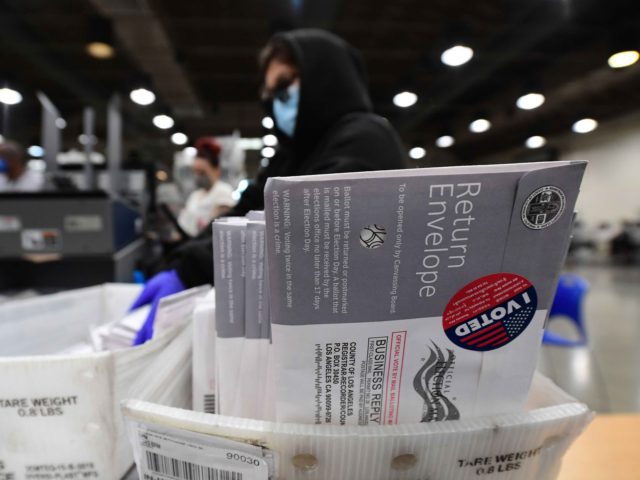The California recall is over, and the margin of victory for the “no” vote was so huge that it dwarfed the effect of whatever voting irregularities might have taken place. But questions remain about the state’s vote-by-mail system, which sent ballots to every registered voter, regardless of whether he or she had requested a mail-in ballot in the past.
Some ineligible voters out of state received ballots; others received additional ballots — sometimes several of them — addressed to other people.
This reporter personally witnessed one such case, at the home of a friend who had received a ballot for another person who had not lived at that particular address for at least ten years. Upon further inquiry, I learned that others had received “ten to fifteen” such ballots.
There appeared to be no particular partisan pattern to the errant ballots, and in theory the laws against voter fraud should discourage most people from turning in other people’s ballots.
However, the fact that so many people seem to have received other people’s ballots, or ballots they themselves were not eligible to cast, has seemed to undermine public faith in elections. And it is unclear how big the problem is.
There are five states where vote-by-mail is already automatic, including conservative Utah (and California may soon make this system, adopted during the pandemic, permanent). But California is much larger, and its voter rolls are in a state of disrepair — the worst, perhaps, out of all 50 states. And California allows unvetted people to return unlimited numbers of other people’s ballots — so-called “ballot harvesting.”
The combination of errant voter rolls, a massive electorate, universal vote-by-mail, and ballot harvesting is a recipe for distrust. There is no evidence of large-scale fraud — but there are suspicions. Why, for example, did a man have 300 ballots in his car when arrested on gun and drug charges last month?
These concerns are going to linger long after the last ballots come in for the recall, as Democrats push California-style voting for the rest of the nation in the name of “voting rights.”
Joel B. Pollak is Senior Editor-at-Large at Breitbart News and the host of Breitbart News Sunday on Sirius XM Patriot on Sunday evenings from 7 p.m. to 10 p.m. ET (4 p.m. to 7 p.m. PT). He is the author of the recent e-book, Neither Free nor Fair: The 2020 U.S. Presidential Election. His recent book, RED NOVEMBER, tells the story of the 2020 Democratic presidential primary from a conservative perspective. He is a winner of the 2018 Robert Novak Journalism Alumni Fellowship. Follow him on Twitter at @joelpollak.

COMMENTS
Please let us know if you're having issues with commenting.